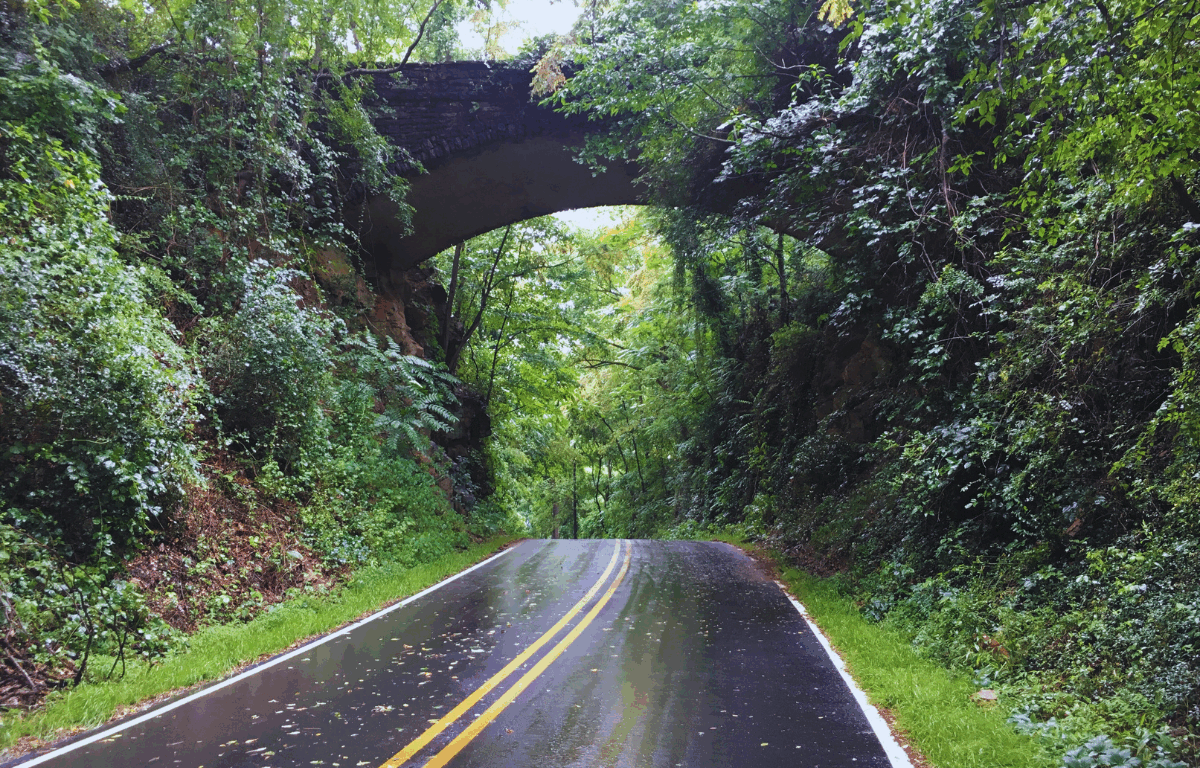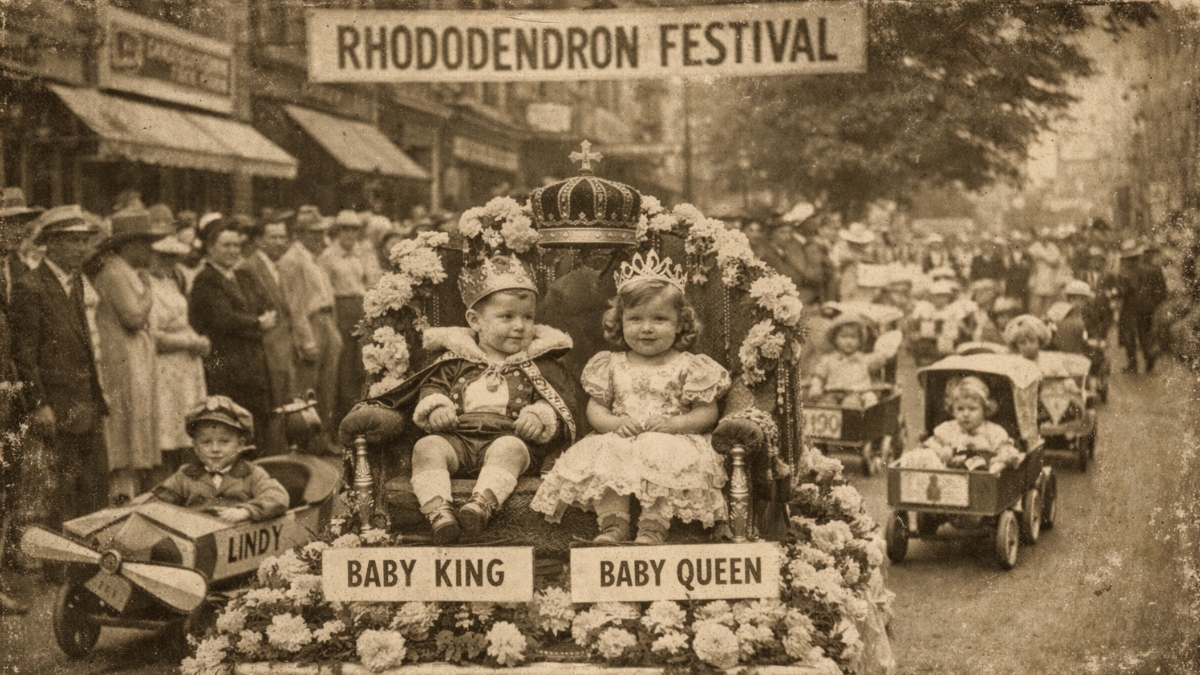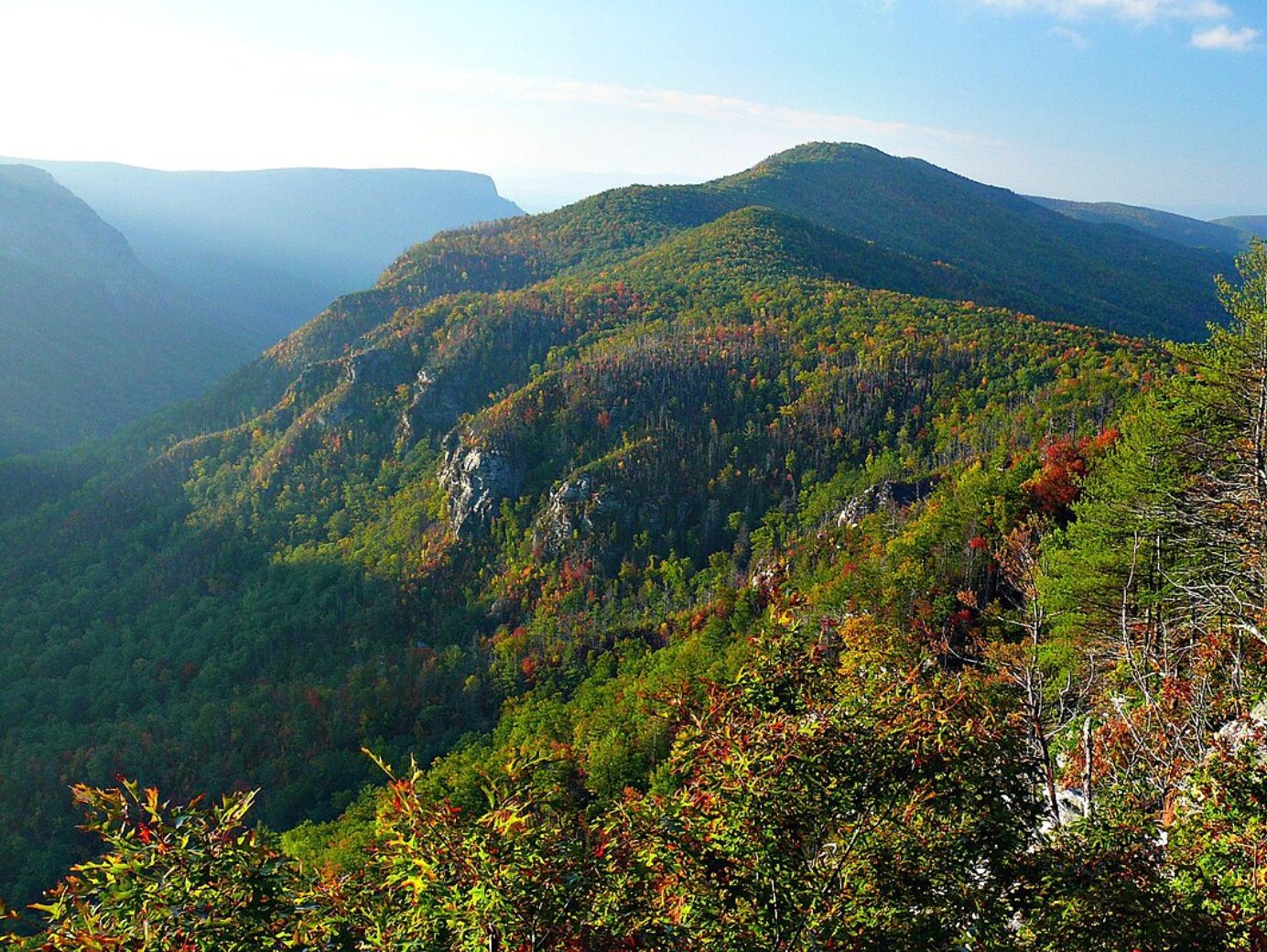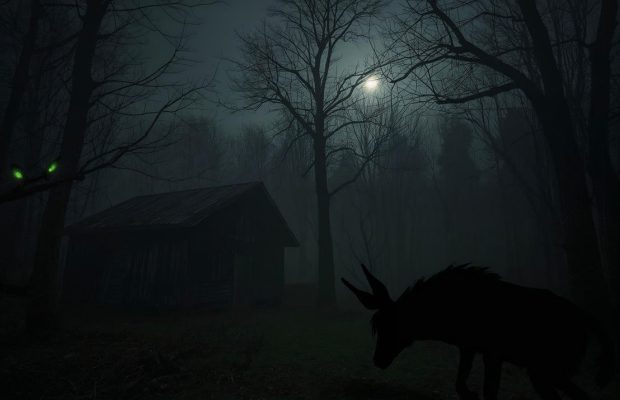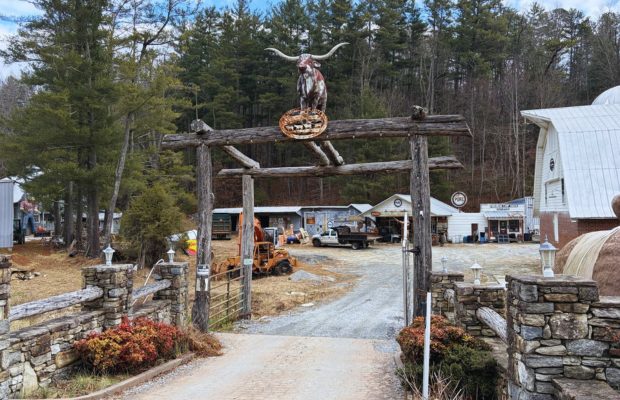EDITOR’S NOTE: Strangeville explores the legends, folklore, and unexplained history of Western North Carolina. From Cherokee mythology and Appalachian ghost stories to Bigfoot sightings and UFO encounters, the Blue Ridge Mountains have long been a hotspot for the strange and mysterious. Join us as we dig into the past and uncover the truth behind the region’s most curious tales.
ASHEVILLE, N.C. — If you park your car beneath the old stone bridge on Beaucatcher Mountain and shout “Helen, come forth!” three times, some say her ghost will answer.
Locals have passed down that bit of lore for generations. Some claim Helen will touch your car, leaving behind a mark. Others swear she causes strange electrical issues or even mechanical failures once you drive away. Whether it’s coincidence or something more, the legend surrounding Helen’s Bridge is one of the most well-known ghost stories in Asheville.
What’s often left out of the story is that it’s not the only one. A nearly identical tale lives just 20 miles south, near Royal Pines Mountain in southern Buncombe County. Two mountains, two “Helens” and one shared ghost story.
The Bridge on Beaucatcher
Helen’s Bridge was built in 1909 to connect the grand Zealandia Mansion to the road below. The simple stone arch is picturesque, quiet, and shaded by trees. The legend tied to it has turned the site into a magnet for ghost hunters and curious tourists.
As the story goes, a woman named Helen lived nearby with her daughter. After the child died in a fire, Helen hanged herself from the bridge in despair. No historical record confirms this version of events, but the tale endures.
Over the years, people have reported all sorts of strange experiences here: flickering headlights, dead batteries, chilling sensations. Some visitors say they’ve seen a woman in white near the bridge or heard whispers in the trees.
There’s even a literary link. Asheville native Thomas Wolfe mentioned the bridge in Look Homeward, Angel, writing about his protagonist walking beneath it and shouting. A fitting echo of the ghost-calling ritual that’s become part of the local lore.
By the late 1990s, the bridge was nearly lost. In 1998, the city closed the street beneath it over concerns about falling stones. For a time, officials considered demolishing the structure. Public outcry changed that. Residents and historic preservation advocates rallied to save the bridge, which was repaired and reopened the following year.
These days, Helen’s Bridge sits just off a winding mountain road. It can be tricky to find without a guide but that doesn’t stop people from coming.
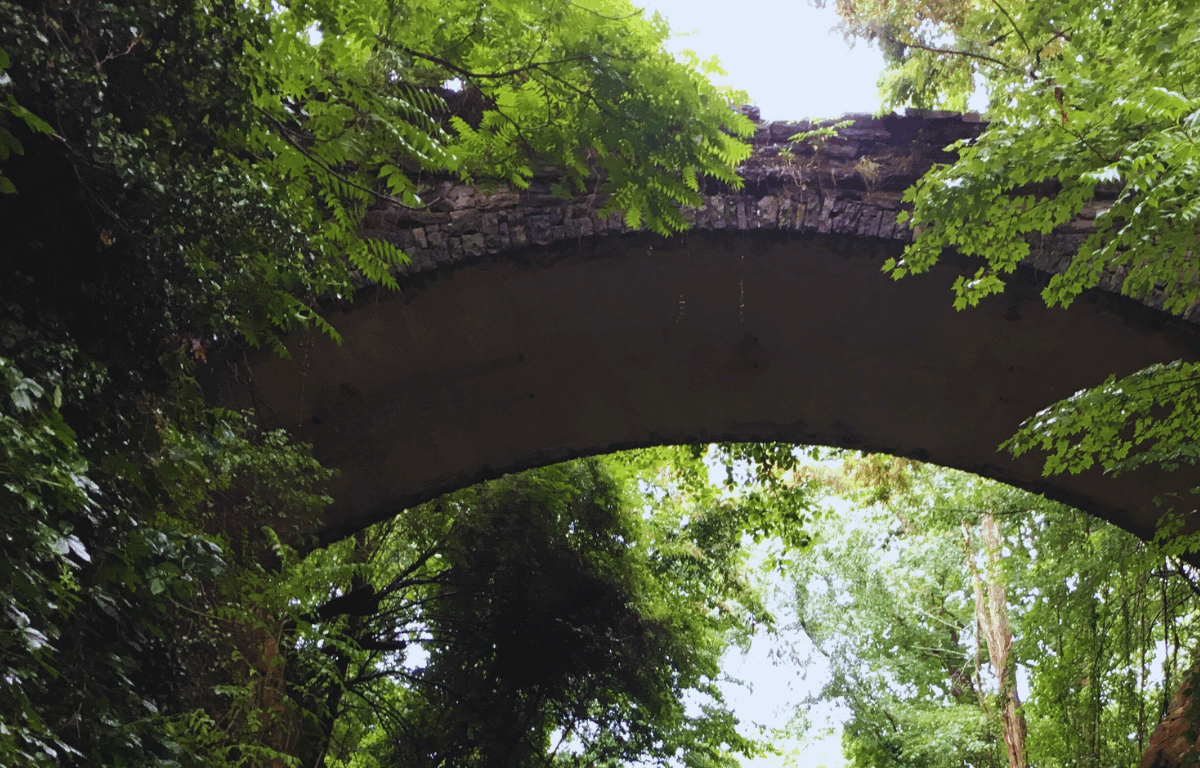
A Second Helen on Royal Pines
What’s less known is that a similar version of the Helen legend exists just south of Asheville on Royal Pines. The origin of that story dates back to the early 1800s. According to local lore, a woman named Helen lived in a cabin on the mountain with her daughter. One night, a man broke in and tried to assault her. During the struggle, a kerosene lantern was knocked over, setting the cabin on fire. Both Helen and her daughter died in the blaze. Since then, some believe Helen’s spirit has roamed the mountain, still searching for her child.
The legend gained new attention in September 1964 when the Goldsboro News-Argus published a brief story about a group of Hendersonville teenagers who decided to test it. They hiked Royal Pines on a moonlit night and followed the same ritual known from Helen’s Bridge, calling out “Helen, come forth!” three times. According to their account, something moved in the darkness. A woman who was with them described it as “a spirit.” The group panicked and bolted down the mountain. One teen even ran out of his shoes in the scramble.
A Buncombe County sheriff’s deputy responded to the scene but saw nothing unusual. He chalked it up to mist and imagination.
Though the Royal Pines story faded over time, it shares striking similarities with the tale of Helen’s Bridge. Same name, same ritual, same mysterious response.
A Ghost, a Name, and a Mystery
Why do two locations in Buncombe County carry nearly identical stories about a woman named Helen? Some researchers believe the legend became a kind of ghost story template. One that may have absorbed details from other tragedies like the unsolved 1936 murder of Helen Clevenger at Asheville’s Battery Park Hotel. Though there’s no direct connection, the shared name and local fascination with her case may have deepened the mystery surrounding “Helen.”
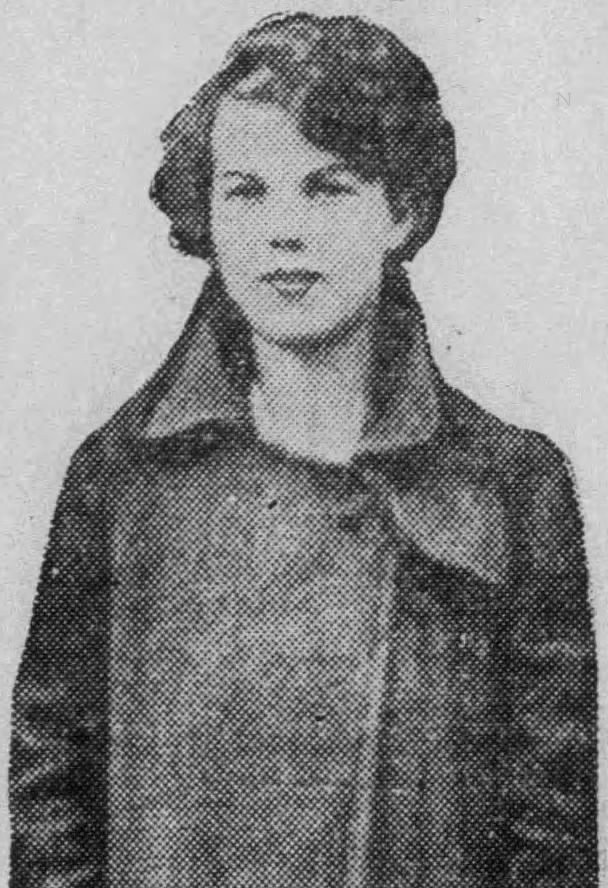
Today, whether you visit Beaucatcher Mountain or Royal Pines, the name Helen still holds power. Locals pass it down. Teens dare each other to call it out. Some leave wondering what they just experienced.
No one can say for sure who Helen was, but her name still echoes across two mountains in Western North Carolina, called forth by anyone willing to test the legend for themselves.
-
Strangeville: Asheville’s Rhododendron Baby Parade

During Asheville’s Rhododendron Festival heyday, a Baby Parade drew huge crowds and tiny floats. The tradition lasted until money worries and a world war changed everything.
-
Strangeville: Linville Hermit disappearance remains a mystery

A man known locally as the Linville Hermit is said to have vanished from his mountain cabin in the 1800s. No official record exists, but the story has remained part of local folklore for generations.
-
Strangeville: The Whang Doodle that haunted Polk County

A legend from Polk County tells of a mysterious creature once seen by a young boy in the Appalachian foothills.
-
Strangeville: The Ghost Town of Puncheon Camp Creek

EDNEYVILLE, N.C. (828newsNOW.com) — In the open farmland of rural Henderson County, two oversized
-
Strangeville: The Cherry Bounce King of WNC

Meet Amos Owens, the Cherry Bounce King of North Carolina, whose moonshine legacy and infamous mountain parties made him a folk legend on Cherry Mountain in the late 1800s.

